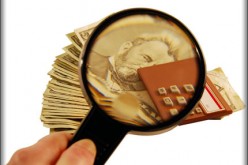Without proper planning, you may find yourself scrambling for cash or, worse, relying on credit cards to pay for your trip. Avoid the panic and debt traps — make a plan now!
Assuming that your vacation will take place in July or August, the following preparation steps should be taken:
6 months out — Nail down a date that you want to take off. Discuss with your spouse a week or two off that works best for the both of you. Put in your vacation request with your employer immediately. Once approved, move forward with your plans.
Ongoing #1 — Set aside weekly or per pay period money to be used only for your vacation. If your vacation budget is depleted, you’ll want to steadily save money to reach your goal. If you know that you will receive a tax refund, apply at least some of that money to your trip. For example, if your vacation costs will run you $3,000 and you can apply $600 of your tax refund toward your plans. That leaves you $2,400 to save over the next six months or 24 weeks. You’ll need to save $100 per week to reach your goal. Open a dedicated vacation account at your bank and begin to fund it.
5 months out — Arrange where you will be staying. If you plan to rent a home at the shore, lake or mountain retreat, then find that place now before it is no longer available. Expect to pay a premium for a home rented during the first week of July covering Independence Day. Rates are cheapest towards the end of the summer, but rise again over Labor Day. Negotiate with the landlord your rate — you may be able to secure a slightly lower cost by asking for a better deal. Pay your deposit.
Ongoing #2 — Start shopping for the things you’ll need when you’re away. If new bathing suits are needed, grown-ups can buy now. Fast growing kids should wait closer to vacation time to avoid outgrowing clothes by then. Keep your eyes peeled for discounts on summer goodies such as suntan lotion, an ice chest, a beach umbrella and things you’ll need for the home such as food, paper goods and sundry items. Check garage sales for items that don’t need to be new including beach chairs.
4 months out — Review the contract for your home rental. If you’ll be staying in a hotel and/or flying to your destination, search for rates immediately. Visit our partner website, SayFunTravel for deals on air travel, hotel stays, car rentals, cruises and more. Book your flight as soon as possible, using airline miles to cover at least some of your expenses.
3 months out — Go over your finances to see if you’re on track. By now, your tax refund should have arrived. If the money received was less than anticipated, then you’ll have to make some adjustments in the amount of money you’ll need to set aside. If it is more, then add that money to your vacation fund account. Stay on course and make adjustments as needed.
2 months out — Search for activities near your vacation stay. A week at the beach or lake means you’ll probably spend most of the time nearby. However, beach boredom can quickly set in. Find local places to visit that can be especially useful to go to on days where bad weather changes your plans. Plan and map out your routes in advance. Look for coupons to restaurants, zoos, aquariums and other points of interest nearby.
1 month out — Buy the clothes that everyone needs and still doesn’t have. Shorts, polo or t-shirts, flip-flops and bathing suits can be picked up now. Look for sales especially around the first week of July when summer clothes are being pushed out for fall and winter clothing. Arrange for one or more people to take in your mail, to care for your pets and to keep a watch on your home while you’re away. A fast growing lawn should be mowed just before you leave and perhaps once while you’re away.
1-2 weeks out — Purchase perishables if you’re renting a home and have sufficient refrigeration. Pack cookout supplies including a grill, if needed. Your vacation account should be fully funded one week before you are ready to leave. Make your final rental or trip payment if outstanding. Get a first aid kit ready or buy one.
Begin your vacation — Final loose ends should be tied up one to two days before you leave. Get everything packed ahead of time, except for perishables, and fill the tank up in your car if you’re driving to your destination. Inspect the tires, check the battery and top off fluids to have your car ready for the trip ahead. Verify that your auto club membership is up to date. Leave when you’re ready, enjoy your trip and relax.
Final Thoughts
Save your receipts for evaluation of your costs after you return home. Sit down and review your trip and use what you learned from your time away to plan for next year’s trip. If saving up over six months was stressful, consider beginning to set aside money for next year’s trip twelve months in advance.
end of post idea for home improvement
view and analyze home improvement ideas at our LetsRenovate center
Helpful article? Leave us a quick comment below.
And please give this article a rating and/or share it within your social networks.










